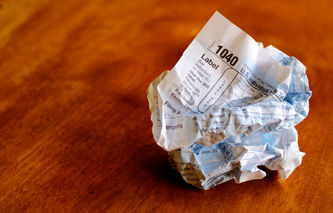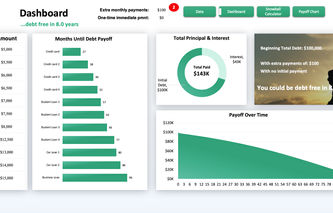Tax Software
Not sure where to start with your taxes? Find out how tax software could save you a whole lot of time and hassle.
 The below tax software packages have been researched, reviewed, confirmed, vetted, re-vetted, and then ranked based on a multitude of categories.Deepti NickamApril 12th, 2024
The below tax software packages have been researched, reviewed, confirmed, vetted, re-vetted, and then ranked based on a multitude of categories.Deepti NickamApril 12th, 2024
Types of Tax
Tax rates and rules vary by type. Learn more about the different types of tax here.
 For many homeowners, property taxes represent a large proportion of their monthly mortgage payment. While politicians like to talk about lowering property taxes, in most towns across the nation, this tax increases nearly every year.Moneyzine EditorDecember 5th, 2023
For many homeowners, property taxes represent a large proportion of their monthly mortgage payment. While politicians like to talk about lowering property taxes, in most towns across the nation, this tax increases nearly every year.Moneyzine EditorDecember 5th, 2023 Sales tax by state is one of the most important points to consider when evaluating the impact of tax revenue in regions across the US.Rebekah CarterNovember 2nd, 2023
Sales tax by state is one of the most important points to consider when evaluating the impact of tax revenue in regions across the US.Rebekah CarterNovember 2nd, 2023
Tax Tips, Guides & Resources
Wondering when you need to file your return? Or how you can save money on taxes? Get answers and guidance on all things tax.
.jpg) Attention taxpayers! If you're paying any amount of tax, you need to hear this. Most of us are unknowingly giving away more of our income to taxes than necessary.Giovanni AngioniMarch 11th, 2024
Attention taxpayers! If you're paying any amount of tax, you need to hear this. Most of us are unknowingly giving away more of our income to taxes than necessary.Giovanni AngioniMarch 11th, 2024 Audits can be a nerve racking experience. Many times they feel like an investigation, and the outcome is often painful. This is especially true when the audit involves the Internal Revenue Service.Moneyzine EditorFebruary 14th, 2024
Audits can be a nerve racking experience. Many times they feel like an investigation, and the outcome is often painful. This is especially true when the audit involves the Internal Revenue Service.Moneyzine EditorFebruary 14th, 2024 Assembling the required documentation ahead of time will minimize the effort it takes to fill out an income tax return. With the availability of electronic files and the help of sophisticated software tools, the process can be fast, secure, and comprehensive.Moneyzine EditorDecember 5th, 2023
Assembling the required documentation ahead of time will minimize the effort it takes to fill out an income tax return. With the availability of electronic files and the help of sophisticated software tools, the process can be fast, secure, and comprehensive.Moneyzine EditorDecember 5th, 2023 Generally, a tax shelter is a program that allows individuals or businesses to permanently reduce or defer the payment of income taxes. These programs are not right for everyone; even legitimate ones involve a level of risk that not every investor will be comfortable undertaking.Moneyzine EditorDecember 5th, 2023
Generally, a tax shelter is a program that allows individuals or businesses to permanently reduce or defer the payment of income taxes. These programs are not right for everyone; even legitimate ones involve a level of risk that not every investor will be comfortable undertaking.Moneyzine EditorDecember 5th, 2023 While the single most important day of the tax season is April 15, there are a number of important dates to consider each year. A tax calendar is a handy reference document, which can help all taxpayers avoid both penalties as well as late fees.Moneyzine EditorNovember 21st, 2023
While the single most important day of the tax season is April 15, there are a number of important dates to consider each year. A tax calendar is a handy reference document, which can help all taxpayers avoid both penalties as well as late fees.Moneyzine EditorNovember 21st, 2023 Details Last Updated: Tuesday, 21 April 2020Moneyzine EditorNovember 21st, 2023
Details Last Updated: Tuesday, 21 April 2020Moneyzine EditorNovember 21st, 2023


.jpg)